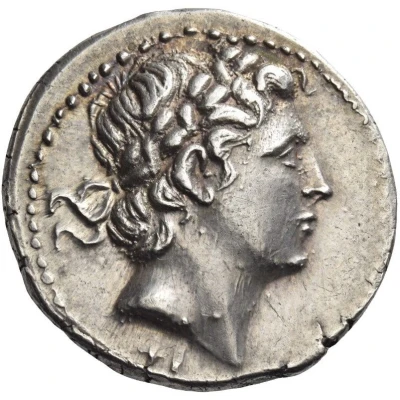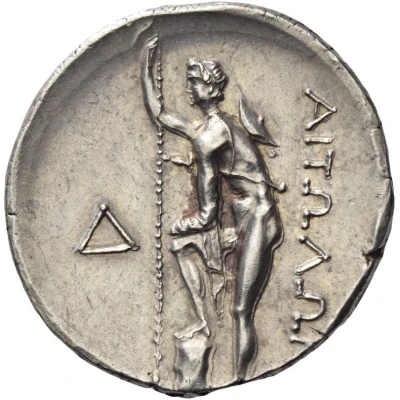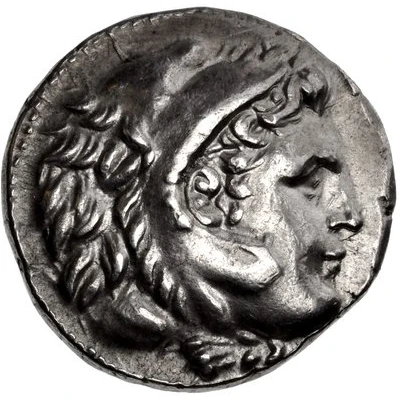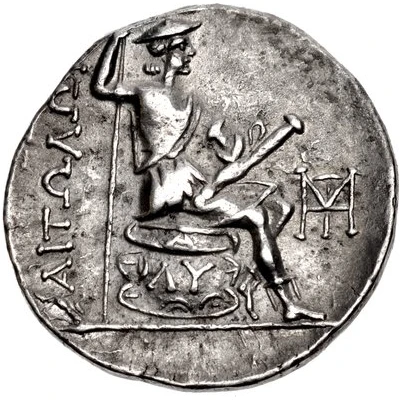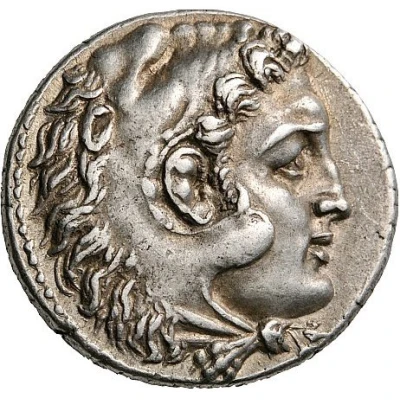
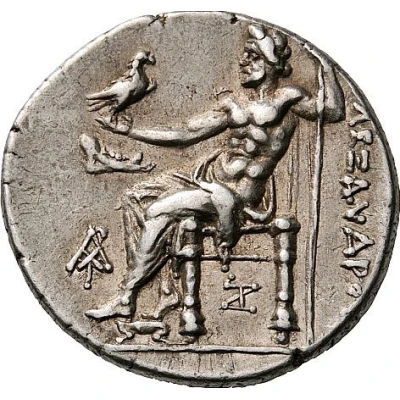

© Nomos AG
Tetradrachm In the name of Alexander III 239 BC
239 BC year| Silver | 17.02 g | 25 mm |
| Issuer | Aetolian League (Aitolia) |
|---|---|
| Type | Standard circulation coin |
| Year | 239 BC |
| Value | Tetradrachm (4) |
| Currency | Drachm |
| Composition | Silver |
| Weight | 17.02 g |
| Diameter | 25 mm |
| Shape | Round (irregular) |
| Technique | Hammered |
| Orientation | Variable alignment ↺ |
| Demonetized | Yes |
| Updated | 2024-10-09 |
| Numista | N#182133 |
|---|---|
| Rarity index | 90% |
Reverse
Zeus, holding eagle in his right hand and scepter with his left, seated left on throne. To left, below his right hand, boar’s jaw bone to right and to left and below throne, monogram
Script: Greek
Lettering: ΑΛΕΞΑΝΔΡΟΥ
Translation: Alexander (III, the Great)
Comment
Note from Nomos AG:This coin is a numismatic discovery of great importance. The unusual symbol, the jawbone of a boar, strongly suggested that it had been minted in Aetolia, but it was its superb and highly individual obverse style that allowed it to be more securely identified. Upon comparing it to the well-known tetradrachms struck by the Aetolian League (obverse: head of Herakles in a loinskin headdress; reverse: seated figure of Aetolia) a rather astonishing discovery was made: this obverse die was not only used for the first League tetradrachms (obverse D 1), but it was also then recut (D 2) and continued in use for the immediately following issues! This means that the Aetolians must have decided to produce tetradrachms, probably for military payments in the run up to the war against Macedon, initially of the familiar Alexander type. They then almost immediately decided to change the design for a more patriotic version of their own, especially since using a Macedonian coin type to finance a war against Macedon probably felt most peculiar.
Interesting fact
The Aetolian League was a confederation of cities in ancient Greece, and the Tetradrachm coin was issued by the League in the name of Alexander III, also known as Alexander the Great. This coin was used as a standard circulation coin in the region and was made of silver, weighing 17.02 grams. It's interesting to note that the coin's design and weight were heavily influenced by the Macedonian standard, which was the currency used by Alexander the Great's empire. This coin is a great example of how currency can reflect the political and cultural influences of a region, and it's a fascinating piece of history that provides insight into the economic and trade practices of ancient Greece.
